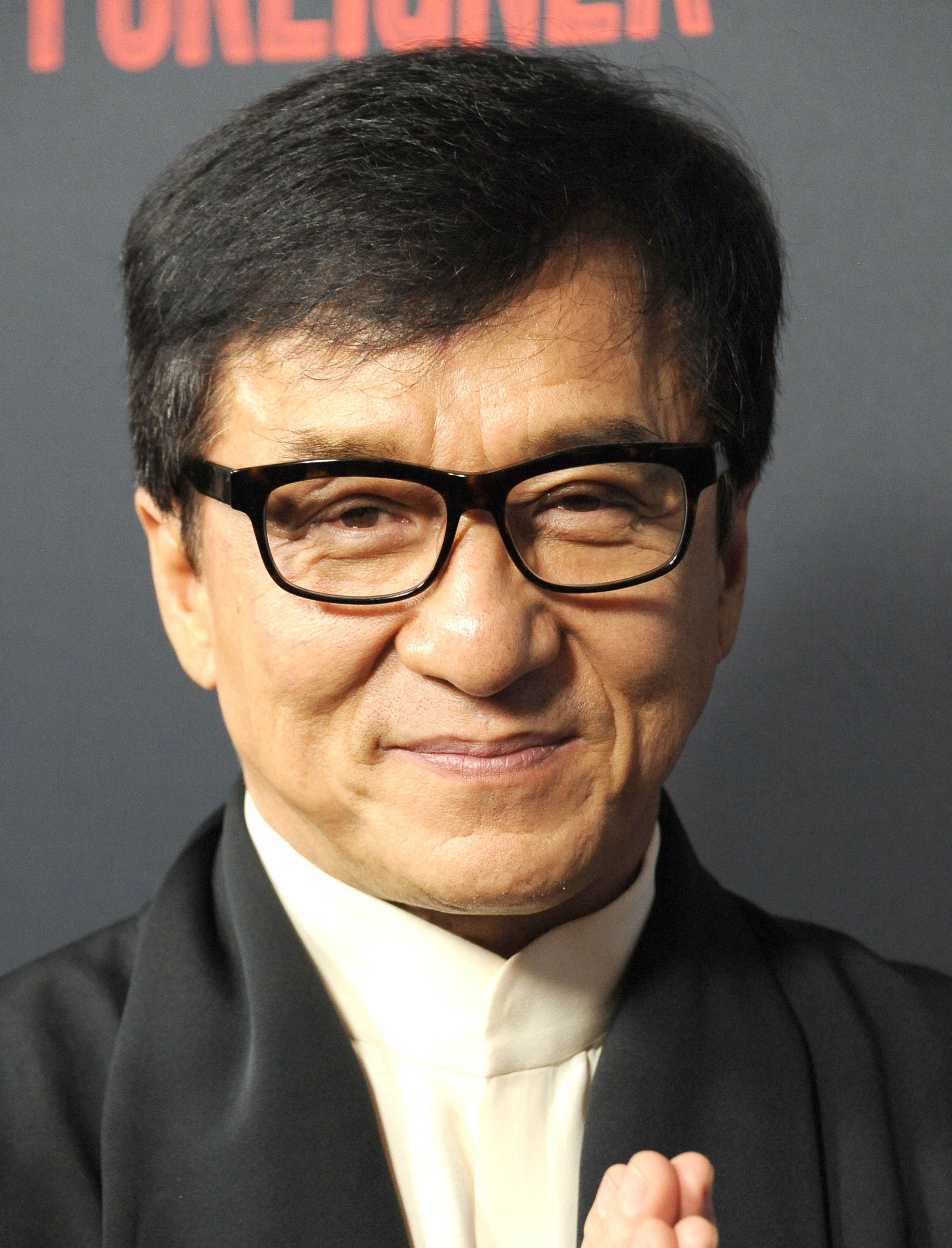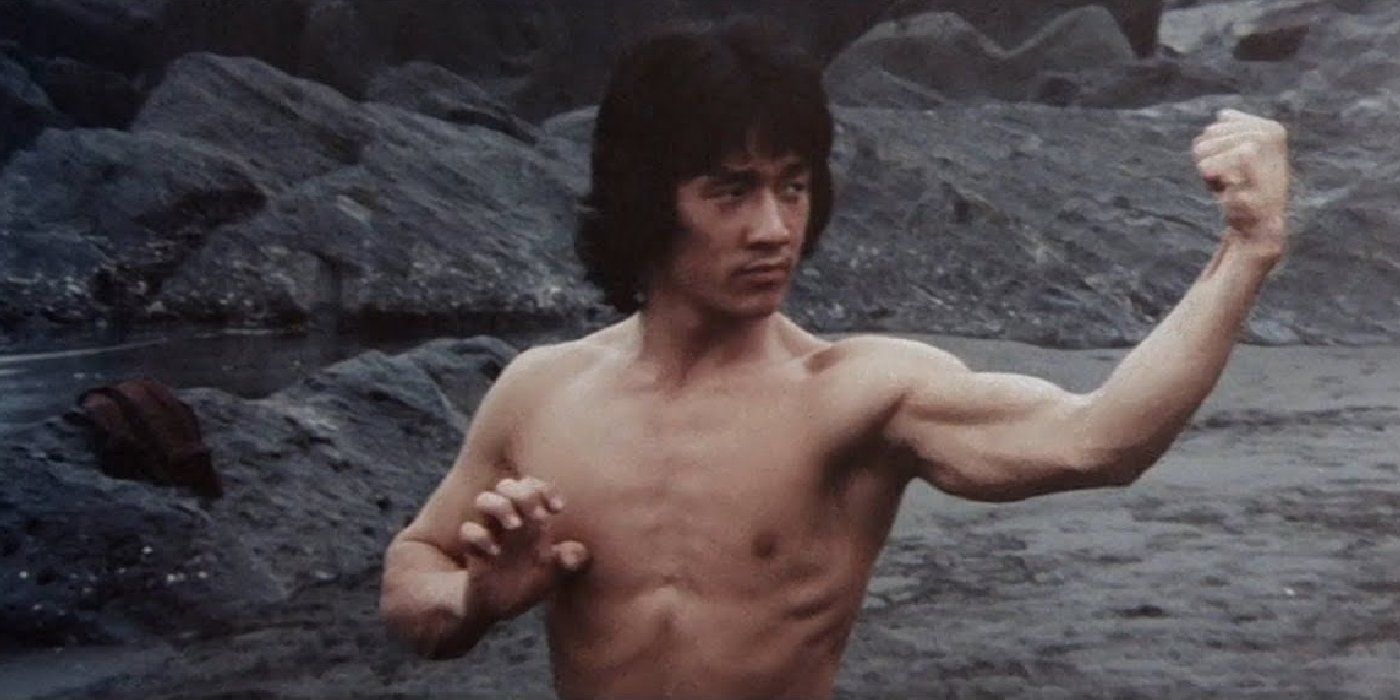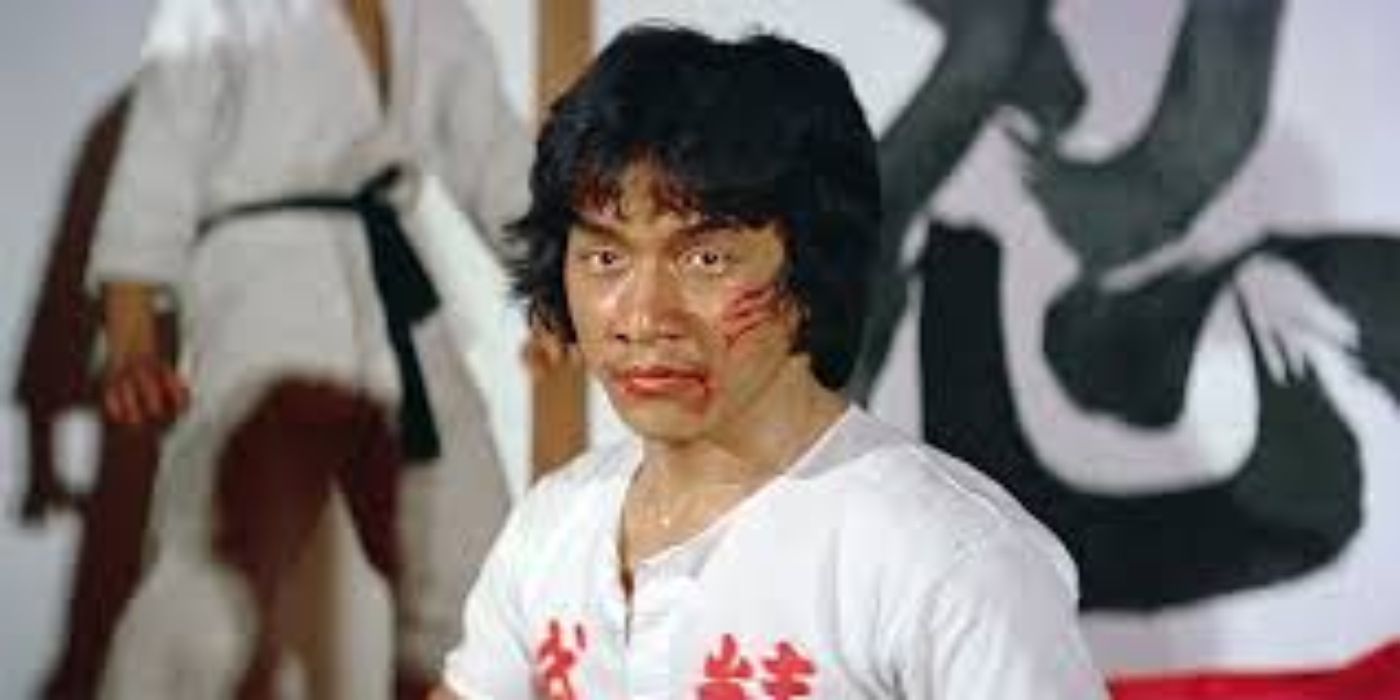In Jackie Chan’s own words, he was “box office poison” in the 1970s. Yet, the actor still managed to become a pop culture icon and a fixture of the martial arts movie genre. After getting his start in Hong Kong’s film industry as a stuntman, Chan slowly emerged as a star in his own right, headlining several movies in the latter half of the 1970s.
Chan landed his first starring role in 1976 when he played the lead character in New Fist of Fury, an unofficial sequel to Bruce Lee’s kung fu classic, Fist of Fury. The film was followed up by a series of kung fu movies, most with Chan as the top-billed actor. However, it took quite a while for Chan to become a true star, with a long list of films failing to do much to advance his acting career.
Jackie Chan Was “Box Office Poison” In The 1970s
Jackie Chan Struggled To Find Success In The Mid-1970s
Between 1976 and 1977, Jackie Chan starred in six kung fu movies, none of which were financial successes. After playing the lead in New Fist of Fury, he co-starred in Killing Meteors as a villain opposite martial arts movie legend Jimmy Wang Yu and played an ally to the hero in Hand of Death. He also played the main character in Shaolin Wooden Men, To Kill with Intrigue, Snake and Crane Arts of Shaolin, Dragon Fist, Half a Loaf of Kung Fu, and Spiritual Kung Fu. For the most part, they were serious, old-school kung fu movies that sent their protagonists on missions of revenge, which are obviously very different from the work he later became known for.
Jackie Chan was aware of the “problems” with them but didn’t have the authority or the clout to voice his concerns or steer the productions in a better direction.
Unfortunately, all of these films either bombed at the box office or didn’t release until later. Jackie Chan summed up this phase in his career in Never Grow Up, saying, “My reputation was, fairly and squarely, box office poison.” According to him, he had been “to hell and back” starring in these movies he didn’t want to make. It would seem that the movies’ inability to succeed didn’t surprise him, as Jackie Chan was aware of the “problems” with them but didn’t have the authority or the clout to voice his concerns or steer the productions in a better direction.
Why Jackie Chan’s First Few Movies Were Failures
They Didn’t Allow Jackie Chan Any Freedom To Do Things His Way
Jackie Chan attributed the shortcomings of his early films to a number of issues, with the biggest being their inability to utilize him properly as an actor. In 1976, the industry was still trying to replace Bruce Lee, who had died in 1973. One of the actors seen as a potential replacement was Jackie Chan, hence his role in New Fist of Fury. Chan noted that the movie’s director, Lo Wei, wanted to transform the actor into “Bruce Lee the Second,” meaning that he had to emulate Lee’s style and play a character similar to his.
What he was asked to do in New Fist of Fury ran contrary to his real talents
Obviously, this is in stark contrast to the persona Chan later developed, given that Jackie Chan is very different from Bruce Lee, who always played unbeatable, no-nonsense martial artists. What he was asked to do in New Fist of Fury ran contrary to his real talents, which rely heavily on comedy. To make matters worse, this approach lasted far beyond New Fist of Fury. Because he had a contract with Lo, he had to make multiple movies under the director’s production company, and Lo Wei was apparently unwilling to let Jackie Chan be anything other than “Bruce Lee the Second.“
Drunken Master & Snake In The Eagle’s Shadow Saved Jackie Chan’s Career
Jackie Chan Convinced An Independent Movie Producer To Let Him Try Something Different
Jackie Chan’s fortunes changed when he was allowed an opportunity to make a movie with a different studio. Chan said that he explained to independent movie producer Ng See-Yuen that he was tired of being made into a new Bruce Lee, and asked if he could try “an entirely different path.” Chan paraphrased the explanation he gave to the director regarding his vision for his onscreen persona and how it would differ from Bruce Lee’s:
“Bruce Lee always kicked high, but I keep my legs low to the ground. Bruce Lee would scream and roar while fighting in order to demonstrate his power and rage, but I prefer to cry and pull out faces, to show how much pain I’m in. Bruce Lee is superhuman in the audience’s eyes, but I just want to be a regular guy. I just want to play ordinary, flawed people who sometimes despair. They aren’t heroes; there are things they can’t do.“
Jackie Chan’s plea worked, and the producer was convinced to cast Jackie Chan in two projects, both being movies where he would play characters remotely different from the Bruce Lee-like image he had been cultivating against his wishes in Lo Wei’s films. The two movies that resulted from Chan’s new contract were Snake in the Eagle’s Shadow and the now-legendary Drunken Master.
Released in the same year, the two movies reinvented Jackie Chan’s image and breathed new life into his career, all the while exposing the fundamental flaw in Chan’s earlier films and highlighting what they were missing out on
Released in the same year, the two movies reinvented Jackie Chan’s image and breathed new life into his career, all because they finally exposed the fundamental flaw in Chan’s earlier films and highlighting what they were missing out on. Unlike Shaolin Wooden Men and the others like it, Drunken Master and Snake in the Eagle’s Shadow were funny martial arts movies about “everyman” heroes, much more in line with the Jackie Chan people known today.
Both were huge successes at the box office, with Chan pointing out that they even managed to outperform Bruce Lee’s movies. They did well enough to justify another partnership with that studio in the form of Fearless Hyena. The three films together drew a more serious look at Jackie Chan’s talents from Lo Wei, who had him sign a contract with Golden Harvest, the same studio that was behind Bruce Lee’s Hong Kong films.
With Golden Harvest, Jackie Chan’s future took shape, allowing the actor to star in bigger-budget kung fu movies that further elevated his status in the industry to a point where he was eventually able to attract attention from Hollywood. And it was all thanks to Drunken Master and Snake in the Eagle’s Shadow, which revealed what a Jackie Chan movie should be, and effectively served as a template for the formula that he would perfect in 1980 with the release of Young Master.

Jackie Chan
- Birthname
-
Chan Kong-sang
- Birthdate
-
April 7, 1954
- Birthplace
-
Victoria Peak, British Hong Kong
- Notable Projects
-
Rush Hour, Police Story, Drunken Master, Armour of God 2: Operation Condor







